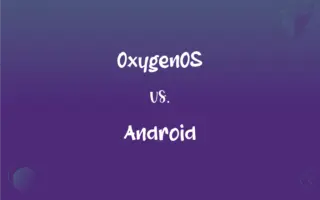Offer vs. Invitation to Treat: What's the Difference?
Edited by Aimie Carlson || By Harlon Moss || Published on February 19, 2024
Offer is a proposal with specific terms, intending to create a binding contract upon acceptance. Invitation to Treat is an expression of willingness to negotiate, not constituting a binding offer.

Key Differences
An offer is a definitive proposal made by one party to another, intending to create a legally binding agreement if accepted. In contrast, an invitation to treat is a preliminary communication expressing a willingness to enter into negotiations but does not amount to a binding offer.
Offers, when accepted, result in a contract, implying that the offeror is bound by the terms proposed. An invitation to treat, however, simply invites others to make an offer and does not bind the party making the invitation to any contractual obligations.
An offer must have clear and definite terms, leaving no room for further negotiations upon acceptance. Invitations to treat, such as advertisements or goods displayed in a store, are not offers but invitations for customers to make an offer to buy.
The power to create a contract lies with the offeror in the case of an offer, as acceptance will seal the deal. In the case of an invitation to treat, the power shifts to the person who responds with an offer.
Offers can be withdrawn before acceptance but become binding once accepted. Invitations to treat can be withdrawn or modified without any legal consequences, as they are not offers in the legal sense.
ADVERTISEMENT
Comparison Chart
Nature
Definitive proposal intending to create a contract
Expression of willingness to negotiate
Contractual Obligation
Creates an obligation upon acceptance
Does not create an obligation
Terms
Clear and definite
Not definitive, open for negotiation
Power to Create Contract
Lies with the offeror
Shifts to the person making an offer in response
Withdrawal and Modification
Can be withdrawn before acceptance
Can be withdrawn or modified without legal consequences
ADVERTISEMENT
Offer and Invitation to Treat Definitions
Offer
A clear and definite proposal made with the intention to be bound by it once accepted.
John made an offer to sell his car for $10,000.
Invitation to Treat
A communication indicating willingness to enter into negotiations.
A job advertisement is an invitation to treat, asking candidates to submit offers (applications).
Offer
A proposal indicating readiness to enter into an agreement.
The company offered a job to the candidate with specific terms.
Invitation to Treat
An expression that does not intend to create legal obligations until an offer is made.
The auctioneer's call for bids is an invitation to treat, inviting offers from bidders.
Offer
An expression of willingness to contract on certain terms.
The landlord made an offer to rent the apartment at a fixed monthly rate.
Invitation to Treat
A statement or action encouraging others to make a binding offer.
The real estate listing was an invitation to treat, encouraging offers from potential buyers.
Offer
A binding promise provided it is accepted by the person to whom it is addressed.
She made an offer to purchase the house, intending to be legally committed upon acceptance.
Invitation to Treat
An invitation for others to make an offer.
Displaying clothes in a store window is an invitation to treat, not an offer.
Offer
A proposition made by one party to another to enter into a legally binding agreement.
The vendor offered to supply goods at a stated price.
Invitation to Treat
A preliminary step to engaging in formal negotiations.
The product catalog is merely an invitation to treat, inviting customers to make purchase offers.
Offer
To present for acceptance or rejection; proffer
Offered me a drink.
FAQs
Is an advertisement an offer or an invitation to treat?
Generally, it's an invitation to treat.
Can an offer be withdrawn?
Yes, an offer can be withdrawn before it is accepted.
What happens when an offer is accepted?
A legally binding contract is formed.
What is an offer?
A proposal with specific terms aiming to create a binding contract upon acceptance.
What does invitation to treat mean?
It's an invitation to others to make an offer, not a binding offer itself.
Does an invitation to treat lead to immediate contractual obligations?
No, it doesn't create any contractual obligation.
How specific must an offer be?
It must be clear and definite in its terms.
Can an invitation to treat be legally binding?
No, as it's merely an invitation to negotiate.
What's a common example of an invitation to treat?
Goods displayed in a store or a product catalog.
What's an example of an offer?
A homeowner offering to sell their house at a specified price.
Can an invitation to treat become a contract?
Only when it leads to an offer that is subsequently accepted.
Is negotiating a price an offer or an invitation to treat?
It's part of the process leading up to an offer.
Is a price tag an offer or an invitation to treat?
It's an invitation to treat, inviting customers to make a purchase offer.
Are online store listings offers or invitations to treat?
They are typically invitations to treat.
Who has the power to create a contract in an invitation to treat?
The power shifts to the person who responds to the invitation with an offer.
Can terms be negotiated in an offer?
Terms can be negotiated before the offer is made final but not after it's made.
How binding is a verbal offer?
A verbal offer can be legally binding if accepted, depending on the context.
Can a bid in an auction be considered an offer?
Yes, each bid is an offer.
How does acceptance differ between an offer and an invitation to treat?
Acceptance of an offer creates a contract; responding to an invitation to treat results in making an offer.
What legal effect does accepting an invitation to treat have?
It typically results in the making of an offer.
About Author
Written by
Harlon MossHarlon is a seasoned quality moderator and accomplished content writer for Difference Wiki. An alumnus of the prestigious University of California, he earned his degree in Computer Science. Leveraging his academic background, Harlon brings a meticulous and informed perspective to his work, ensuring content accuracy and excellence.
Edited by
Aimie CarlsonAimie Carlson, holding a master's degree in English literature, is a fervent English language enthusiast. She lends her writing talents to Difference Wiki, a prominent website that specializes in comparisons, offering readers insightful analyses that both captivate and inform.







































































